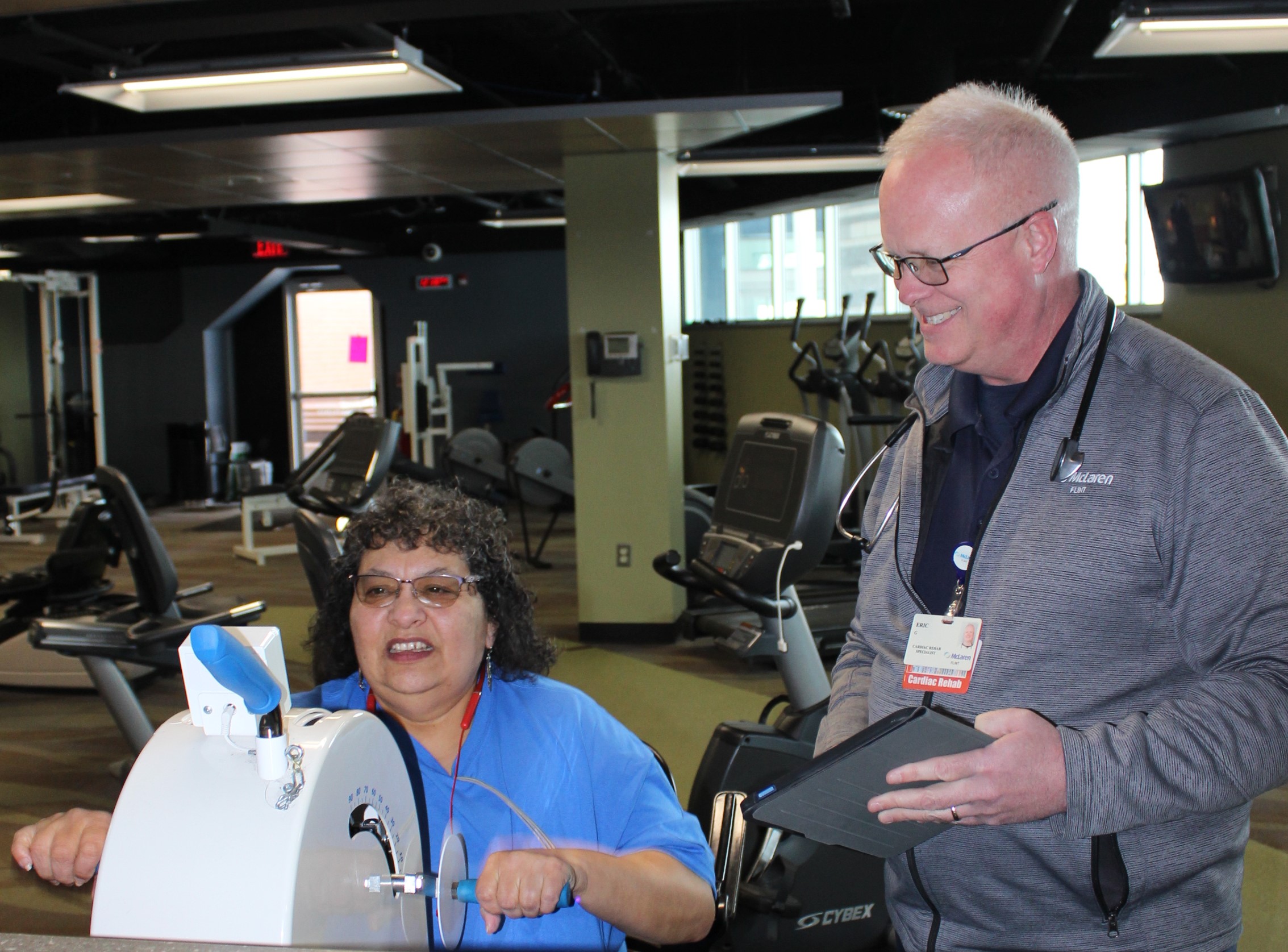Author: Erin Incarnati

Last October, Vickie Christ, 65, of Mt. Morris, was having trouble breathing, so she called her primary care doctor to prescribe an inhaler, as she thought it might just be very bad allergies.
Once her doctor assessed her symptoms, and they seemed worse than just allergies, he suggested she go to the emergency room at McLaren Flint.
“I was admitted at McLaren Flint, and they began doing every necessary test to find out why I was having trouble breathing,” said Vickie. “It was discovered that I had pneumonia, and they were going to treat me for it.”
While she was being treated for pneumonia and waiting for further test results, Vickie went to the bathroom to start getting ready for bed.
“While I was in the bathroom, I thought about that red emergency cord and wondered how many people actually had to use it,” said Vickie. “I certainly thought I wouldn’t ever have to, but suddenly I was dizzy and had trouble breathing. I tried to take deep breaths and tell myself I was fine, but I knew I had to press that red cord I thought I’d never have to use to get some help. Within seconds, three people came in to assess me, and the last thing I remember hearing was that they were going to have to intubate me.”
When she awoke, Dr. Hameem Changezi, an interventional cardiologist at McLaren Flint, was in her room asking her how long she had experienced heart problems.
“When he asked me that, I was very confused because I thought I was in the hospital for breathing problems, not heart problems,” she said. “He told me they saw through my EKG and other testing that I had definitely had a heart attack in the recent past and he wanted to do further testing.”
According to the American Heart Association, almost one in eight heart attacks are silent – meaning the person who experienced it had no idea. That is because the symptoms are often attributed to something else, like indigestion. The evidence of the heart attack isn’t discovered until a patient, like Vickie, is being examined for another health problem.
Dr. Changezi ordered a coronary angiogram test for Vickie. The procedure involves a dye injected into the coronary arteries to show how much they are blocked, giving doctors a better idea of what the best treatment options may be for the patient.
“Dr. Changezi told me there was a blockage in three arteries in my heart,” said Vickie. “Because there was so much blockage, a stent wouldn’t work, so he suggested I have a triple bypass open heart surgery to clear the blockages.”
On October 29, 2024, Vickie had a successful triple bypass and stayed in the hospital for about a week. From there, a visiting nurse, physical therapist, and occupational therapist all did home visits with her to help her recuperate.
“Two weeks after surgery, my next step was to do cardiac rehab at McLaren Flint three days a week,” she said. “I am now in my 14th week of rehab, and I have a variety of exercise equipment to choose from, so my workouts are different every time I go. I can ride different types of bikes, walk on the treadmill, row, and use the elliptical while the therapists watch and test my heart and blood pressure to make sure everything is going smoothly. I’ve recently graduated up to four exercises and look forward to working my way up.”
Since her surgery, Vickie has noticed an improvement in her breathing and energy. She is looking forward to the spring when she can start biking outdoors and the summer when she can kayak.
“I would recommend McLaren Flint to anyone,” said Vickie. “Every person from the medical staff to the therapists and even just employees in the hallways were so nice and sweet and really cared. It is truly just the best place.”
Learn more about the comprehensive cardiothoracic and cardiac rehabilitation programs at McLaren Flint.